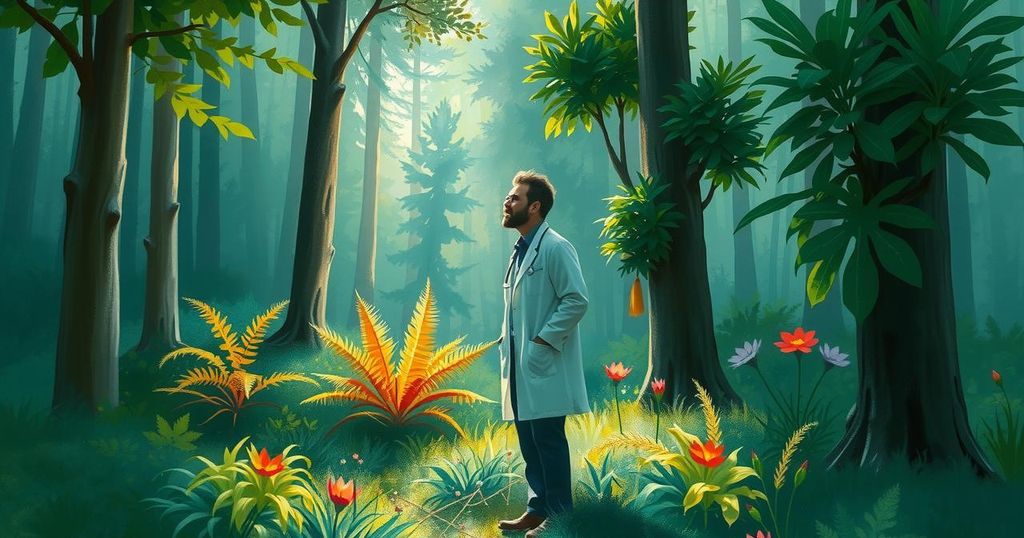Adana Omágua Kambeba: Integrating Indigenous Healing and Modern Medicine
Adana Omágua Kambeba, a doctor from the Kambeba Indigenous group, integrates her medical training with her heritage as a shaman. Facing various challenges, she aims to enhance healthcare within her community and advocate for the merging of traditional Indigenous knowledge with modern medicine. Her journey reflects both persistence and a commitment to cultural understanding in healthcare.
Adana Omágua Kambeba, a Brazilian doctor with Indigenous roots, was recognized as a healer from a young age, gathering wisdom from nature and her community. Initially, her father viewed medicine as a pursuit unattainable for their impoverished family. However, with unwavering determination, she chose to embrace both the roles of a medical professional and a shaman, seeking to integrate these distinct systems of knowledge for better healthcare outcomes in her community.
Graduating as the first Indigenous student from the Federal University of Minas Gerais, Adana faced prejudice and challenges throughout her medical education. She confronted covert discrimination and struggled with the intense demands of medical training, prioritizing her personal experience and understanding over conventional expectations. After a crucial turning point in 2017, she reaffirmed her life’s mission with a clear directive: to weave together her identity as both healer and physician.
Amidst the challenges of the Covid-19 pandemic, Adana graduated in March 2022. This milestone, marked by her receipt of the diploma from Professor Humberto José Alves, highlighted her groundbreaking status in the historical context of her institution. Recently, she has left her roles in urban medical facilities to return to her roots, intending to work directly with the Kambeba communities by providing healthcare and education while undergoing shamanic trials to solidify her role as a pajé, a spiritual leader and healer.
As she embarks on this journey, Adana emphasizes the importance of merging traditional Indigenous knowledge with modern medical practices. In her outreach, she has participated in various speaking engagements, drawing attention to the need for a respectful dialogue regarding Indigenous medicinal practices and the urgency of addressing the impacts of colonialism in modern healthcare.
Notably, Brazil established a subsystem for Indigenous healthcare in 1999 to support culturally appropriate medical approaches. However, challenges persist in reconciling traditional beliefs with biomedicine, as Indigenous patients may distrust hospital interventions. Adana exemplifies a bridge between these two realms, facilitating communication and understanding in critical medical situations where cultural sensitivities must be honored.
Continuing her training under the guidance of seasoned shamans, Adana aims to unite her dual identities as a physician and pajé. Should she succeed in her transformative quest, she envisions celebrating the convergence of these worlds in shared jubilance with both doctors and shamans at her ceremonial festivities.
Adana Omágua Kambeba embodies a profound bridge between Indigenous healing traditions and modern medicine. Her journey reflects resilience against social barriers, dedication to serving her community, and the commitment to honor both her heritage and her profession. By pursuing her path as a pajé, she aims to unite distinct medical philosophies, enriching the relationship between Indigenous peoples and the healthcare system.
Original Source: www.theguardian.com




Post Comment